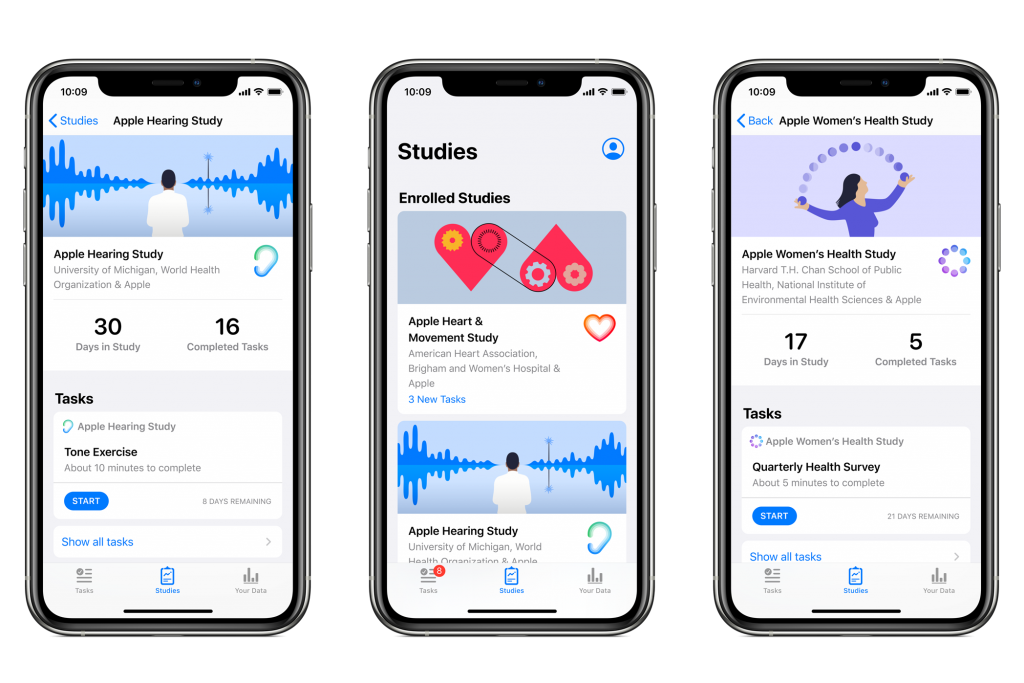15 Nov. 2019. Three medical research studies using Apple iPhones and watches as data collection devices are now available for enrollment with the company’s Research app. Apple first announced the Research app and proposed medical studies at the company’s new-product roll-out in September, reported on Science & Enterprise.
The Research app aims to ease the process for taking part in medical research for iPhone and Apple Watch users. The app displays studies designed for the app’s software, particularly research requiring large numbers of enrollees and following participants over extended periods of time. The studies also take advantage of other features in iPhone and watch software, such as location and activity tracking.
One project, the Apple Women’s Health Study, aims to gain a better understanding of menstrual cycles and gynecologic conditions including infertility, menopause, and polycystic ovary syndrome. The research is a joint undertaking of Apple with Harvard University’s public health school and National Institute of Environmental Health Sciences, part of NIH. The study collects data on menstrual experiences and cycles with monthly surveys. The researchers expect to collect the data over several years, correlating survey responses with physical activity, mobility, and reproductive health issues.
“In the past it’s been very difficult to quantify behavioral factors,” says bio-statistics professor Jukka-Pekka Onnela, a researcher on the project, in a university statement, “With data from smartphones and wearable devices, we can eventually measure these factors unobtrusively over long periods of time.”
A second study joins Apple with American Heart Association and Brigham and Women’s Hospital to study heart health and physical movement. The Apple Heart and Movement Study collects data with iPhones and watches on physical activity and mobility, correlated with heart rate and rhythm, to reveal early warning signs of impending heart disease, such as atrial fibrillation.
The third project, the Apple Hearing Study, assesses exposure to noise over time and its effects on hearing loss. Apple and University of Michigan’s public health school are partnering to capture data from participants’ iPhone and watches on noise exposure, using the devices’ recording capabilities.
“For the very first time ,at an individual level,” says Michigan public health professor Rick Neitzel in a university statement, “we’ll have a holistic sense of people’s noise exposures. We’ll start to be able to evaluate the link between music and hearing loss, and how long-term sound exposure can impact stress levels and cardiovascular health.”
Apple says in a company statement that the Research app has features that enable data sharing only when the participant approves, and includes clear, detailed specifications for informed consent.
More from Science & Enterprise:
- App Automates, Simplifies Test for Preeclampsia
- App Detects Early Eye Disease Symptoms from Photos
- Trial Testing Mobile Telemedicine for Skin Diseases
- Smart Watch, A.I. Analyzing Human Emotions
- Trial to Test App Alerting for Dementia-Linked Drugs
* * *


 RSS - Posts
RSS - Posts
[…] Update – Enrollment Opens in Apple Medical Studies […]